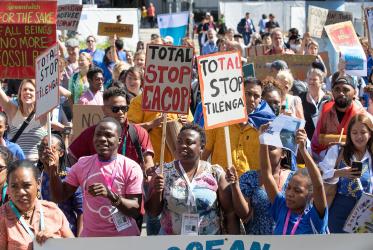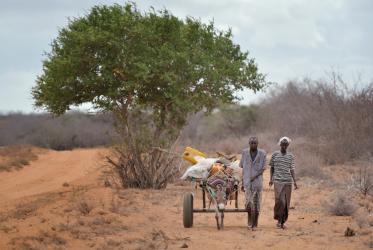Displaying 1 - 20 of 87
17 April 2024
WCC, WHO commemorate 50 years of collaboration
04 April 2024
WCC webinar explores decolonizing beauty
11 December 2023
Llamados a la -Transformación Diaconía ecuménica
24 June 2023
Appelés à la Transformation - Diaconie oecuménique
24 June 2023












